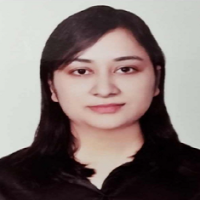4th International Conference on
Surgery and Anesthesia
November 26-27, 2026 | Dubai, UAE

Address: Al Barsha, Al Barsha 1, Dubai, United Arab Emirates
Surgery 2026

PGIMER, India
Abstract:
Necrotizing soft-tissue infections (NSTIs) are aggressive infections characterized by rapid necrosis of the skin, subcutaneous tissue, and deep fascia. Despite their rarity, they pose significant diagnostic and therapeutic challenges, often leading to high morbidity and mortality due to delayed or inadequate treatment. Traditional microbiological cultures play a crucial role in identifying causative pathogens, but their limitations in detecting polymicrobial infections and fastidious organisms necessitate a more comprehensive approach. This study assessed the wound bioburden in 169 NSTI tissue biopsies using both aerobic and anaerobic cultures. Tissue samples were cultured on blood agar and MacConkey plates, with anaerobic incubation performed for 48 hours using the Don Whitley Anaerobic gassing system. Bacterial identification was conducted using matrix-assisted laser desorption ionization-time of flight mass spectrometry (MALDI-TOF MS). The results demonstrated significant bacterial loads, ranging from 10⁹ to 10¹⁷ cfu/ml/g in necrotic tissues, with many heavily infected cases requiring amputation. A semiquantitative classification system (sterile, scanty, mild, heavy, overburdened) provided a rapid assessment of infection severity, enabling timely clinical decision-making. The findings highlight the importance of integrating both aerobic and anaerobic culture techniques in NSTI diagnosis, ensuring a more accurate representation of microbial diversity. This comprehensive assessment facilitates prompt surgical intervention and optimized patient management. Standardized quantitative and semi-quantitative wound bioburden evaluation at the point of care enhances diagnostic precision and informs critical therapeutic strategies, ultimately improving clinical outcomes in NSTI patients.
Biography:
Tanvi is a dedicated PhD scholar in the Department of Medical Microbiology, collaborating with the General Surgery department at one of India’s most prestigious institutions, the Postgraduate Institute of Medical Education and Research (PGIMER), India. Her research focuses on improving the rapid diagnosis and treatment of infectious diseases by understanding the microbial landscape of various infections. With a strong academic background, she has received multiple awards for her contributions and is recognized as a deserving scholar in her field.
